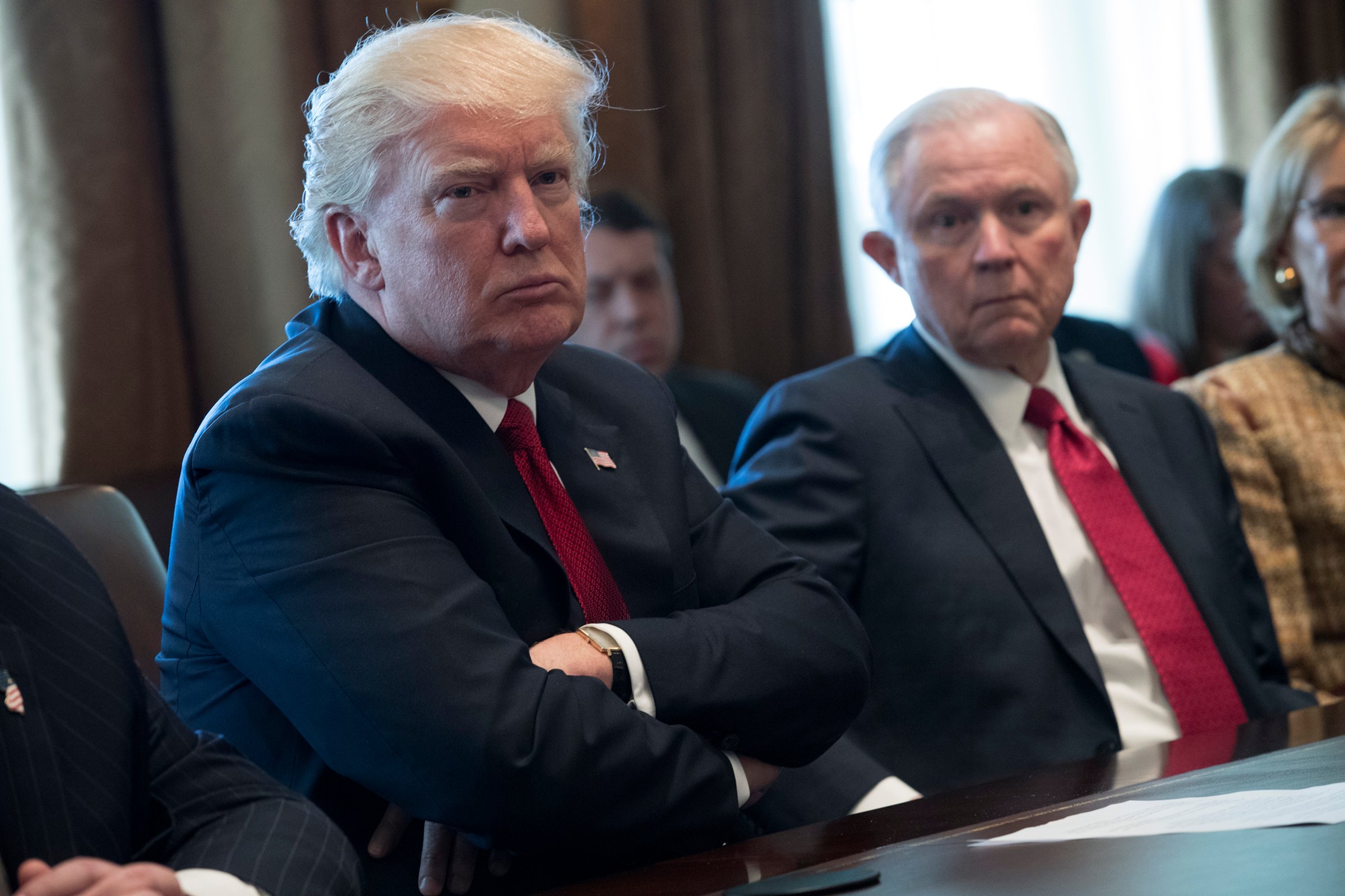
Since taking office nearly a year ago, President Donald Trump has shredded all kinds of political norms, especially when it comes to the justice system.
From attacking judges and FBI agents to calling for investigations of his political enemies, Trump has alarmed many in legal circles over his apparent disregard for the traditional independence of the Justice Department.
But so far Trump has upheld one crucial norm: He has not fired Attorney General Jeff Sessions.
That’s not to say he doesn’t necessarily want to. Trump reportedly erupted in anger over Sessions’ decision to recuse himself from the Russia investigation in March, saying “he needed his attorney general to protect him,” according to a recent New York Times account. The story also recounts that Trump later asked Sessions to resign, before reconsidering the next day.
But if Trump wanted to fire Sessions, there’s nothing in the legal code or the Constitution stopping him. The only constraint on this power is the fact that it typically hasn’t been done, something that has not bothered Trump in other decisions.
Essentially, the framers of the Constitution left voters to be the final check and balance on the president on this kind of decision.
“How it would play out would depend some on the reasons behind the decision,” explains John Bies, who served in the Justice Department for eight years under President Obama and now is chief counsel at American Oversight. If Trump were to fire Sessions for recusing himself or not ‘protecting’ the president, there would likely be political fallout from voters and congressmen, as well as career attorneys at the Justice Department. “I think it would really have a big impact on their reaction to the removal if it was done for some reason that was perceived to be illegitimate,” Bies says.
In other words, while Trump can fire Sessions for any reason he wants, he could pay the price for his choice at the polls or in his relationship with members of the government.
And, although Trump could remove Sessions, it would be highly unusual and violate norms governing the relationship between the Justice Department and the Oval Office. The last major crisis between a president and his attorney general occurred during the Watergate era under President Richard Nixon. In 1973, in what would become known as the Saturday Night Massacre, Nixon ordered the firing of Archibald Cox, a special prosecutor looking into the burglary at the tip of the iceberg of the Watergate scandal. Both Nixon’s attorney general and deputy attorney general resigned in protest rather than carry out the president’s order. In 2007, President George W. Bush’s attorney general Alberto Gonzales also resigned following a scandal over U.S. attorney firings.
But generally, the Justice Department operates with some degree of independence from the White House, so as not to be seen as swayed by political pressure. Trump, however, has already demonstrated a willingness to violate these norms. He fired Acting Attorney General Sally Yates in January 2017, and he fired FBI Director James Comey in May 2017.
Firing Yates and Comey were also within Trump’s powers. But Bies cautions that if he considers firing Sessions, he might look to the political firestorm the Comey ouster caused as a guide. “It’s a tremendously risky gamble and it could have huge consequences for how things play out for him,” Bies says, “just like how firing Comey has played out for him in a way that I think politically has been very bad for the White House.”
Trump can fire Sessions whenever he wants to, for any reason. But it’s up to the voters and their elected officials to decide what happens next.
More Must-Reads from TIME
- Donald Trump Is TIME's 2024 Person of the Year
- Why We Chose Trump as Person of the Year
- Is Intermittent Fasting Good or Bad for You?
- The 100 Must-Read Books of 2024
- The 20 Best Christmas TV Episodes
- Column: If Optimism Feels Ridiculous Now, Try Hope
- The Future of Climate Action Is Trade Policy
- Merle Bombardieri Is Helping People Make the Baby Decision
Write to Tessa Berenson Rogers at tessa.Rogers@time.com